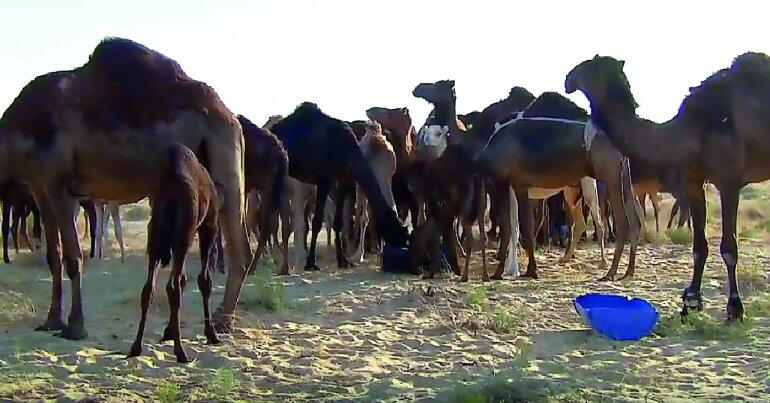The Ministry of Municipality and Environment has offered necessary services to owners of camels and sheep who returned from their farms in Saudi Arabia, after three neighbouring Gulf countries imposed blockade on Qatar.
The Ministry has offered free shelter, water, fodder and veterinary services for more than 8,000 camels and sheep, in order to save the animals which returned from Saudi Arabia.
Omar Salem Al Nuaimi, Director of Environmental Protection Department earlier said that the Ministry had offered temporary shelter especially in areas like South Kasarat Al Nakhash and that more space would be allocated later.
Al Nuaimi said a team of drivers, animal experts and other staff has been assigned to help livestock owners.
Owners said, “In the first days of the crisis we faced problems because it happened suddenly. We lost some camels and we don’t know if they were already dead or alive.”
Describing the problems that they had faced, others said, “The camels were mixed when they were coming here. We spent three to four days during Ramadan to identify our camels. Some of the camels died because of thirst, hot weather and due to some other reasons.”
They appreciated Emir H H Sheikh Tamim bin Hamad Al Thani for his directions, efforts and services which the Ministry offered to them, including temporary land, fodder, veterinary and consultation services.
“Now we have become familiar with the new situation and the Ministry did a lot to help us offering free fodder and water so we appreciate the government for responding quickly,” said a camel owner.
Talking about the number of animals in Qatar, Dr Abdullah bin Mohamed Al Marri, an official at the Ministry, said, “The number of animals is more than 1.03 million out of which 63 percent are sheep, 27 percent are goats, 7 percent camels and 2 percent cows.”
Private companies like Ghadeer, Al Rawda Abdullah bin Rasheed Farm, Baladna Farm and others own around 47,000 livestock.
Also, the Ministry represented by the Livestock Department is providing full support to animal farms and companies by providing free veterinary services and guidance, in order to increase the domestic meat production.
About clinics which provide treatment to animals, Al Marri said that there are nine veterinary centres across the country, in addition to Central Market clinic and mobile clinics.
Source: http://bit.ly/2sPn5Ib











